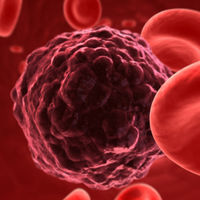NUS partners FIND to discover novel biomarkers for Tuberculosis detection
Advertisement
A research team from the National University of Singapore (NUS) Singapore Lipidomics Incubator (SLING) is collaborating with the Foundation for Innovative New Diagnostics (FIND) to identify novel target molecules to be employed as biomarkers for the detection of active tuberculosis (TB). The aim is to translate these targets into a diagnostic test that is affordable, easy to use and produces rapid results, and that can be used by community health workers in poor countries.
Scientists have attempted to develop a simple and accurate antigen test to detect TB for many years, with little success. The World Health Organization (WHO) has yet to endorse any such test, since it has not deemed that any of the existing examples are of sufficient accuracy for clinical use. The major reason for this failure is the lack of suitable TB-specific biomarkers for diagnostic product development. So far, only a very limited number of antigens have been investigated for this purpose.
“A sensitive, pathogen-specific, point-of-care test for TB case detection would represent a breakthrough in TB diagnostics for disease endemic settings, but we have so far been hampered by a lack of appropriate biomarkers,” said Dr Gerd Michel, Senior Technology Officer at FIND, who is FIND’s project leader. “Through our partnership with NUS, we aim to address this fundamental gap by developing high performance reagents, which we will be able to then convert into a laboratory–free rapid test for TB.”
The technology supported by this partnership is based on research conducted by Associate Professor Markus Wenk, Principal Investigator at NUS SLING, and his team. This revealed that certain mycolic acids - molecules found on the cell wall of Mycobacterium tuberculosis (the bacterium causing TB) - are specific TB disease markers. The study analysed sputum samples from close to 200 individuals with pulmonary TB, some of whom were also infected with HIV. These samples were obtained from patients and endemic controls in South Korea, Vietnam, Uganda and South Africa, i.e. countries with a significant burden of TB.
The NUS research team used high resolution mass spectrometry to determine the precise bacterial remnant in sputum. Based on this analysis, they were able to separate non-TB patients from those with active TB infection, with diagnostic results better than the most widely used TB diagnostic test - sputum smear microscopy.
The high resolution mass spectrometry methodology is complementary to existing TB diagnostics, and is also fast, providing results within a day. The team also revealed in a preclinical study that their methodology could distinguish between active TB cases and cases that had been cured from TB. This research is one of the early accomplishments of the new NUS SLING, which was established in end 2010. The research data from this study are due to be published in EMBO Molecular Medicine.
Other news from the department science
Most read news
More news from our other portals
See the theme worlds for related content
Topic World Mass Spectrometry
Mass spectrometry enables us to detect and identify molecules and reveal their structure. Whether in chemistry, biochemistry or forensics - mass spectrometry opens up unexpected insights into the composition of our world. Immerse yourself in the fascinating world of mass spectrometry!

Topic World Mass Spectrometry
Mass spectrometry enables us to detect and identify molecules and reveal their structure. Whether in chemistry, biochemistry or forensics - mass spectrometry opens up unexpected insights into the composition of our world. Immerse yourself in the fascinating world of mass spectrometry!























































